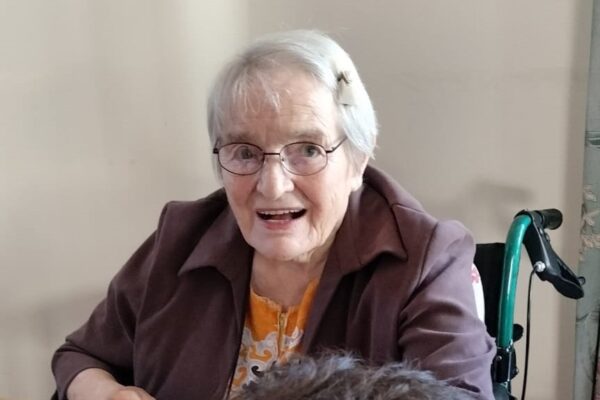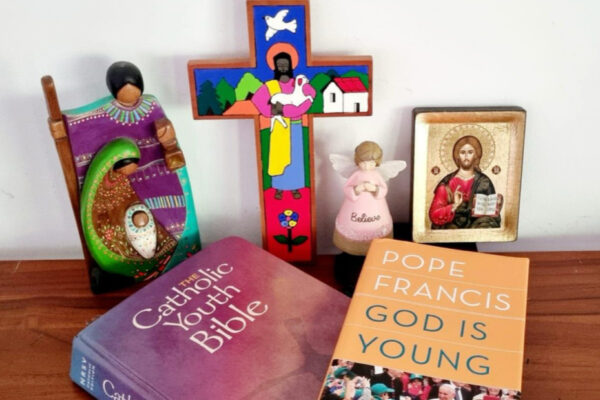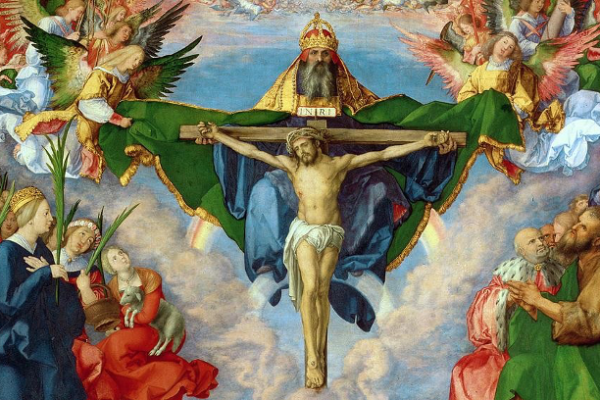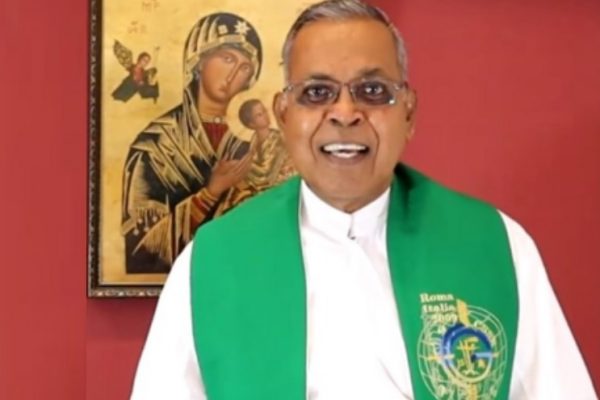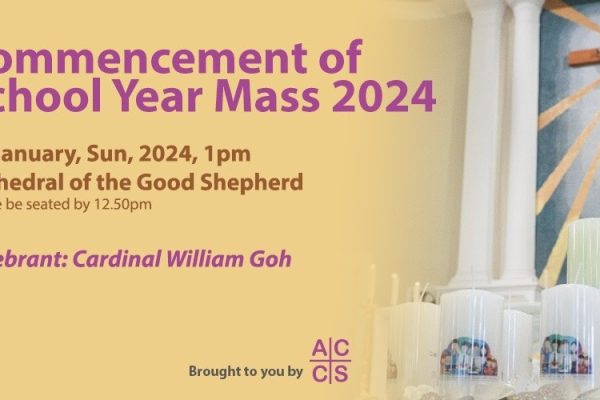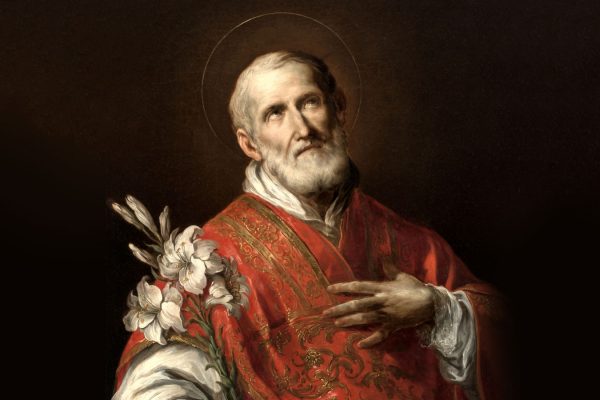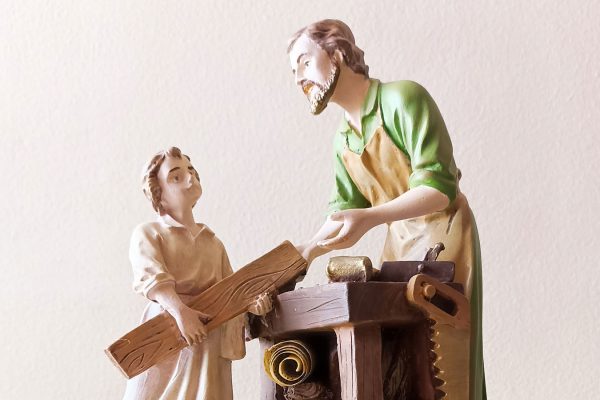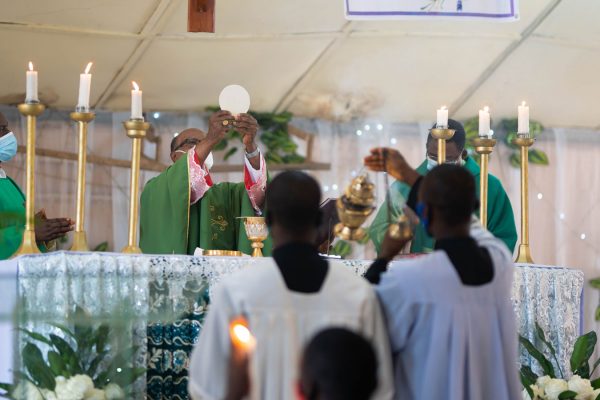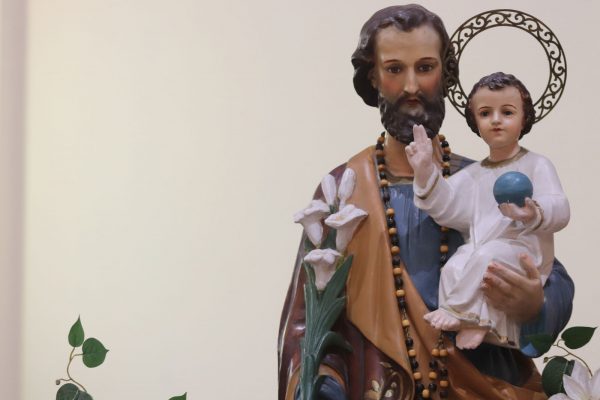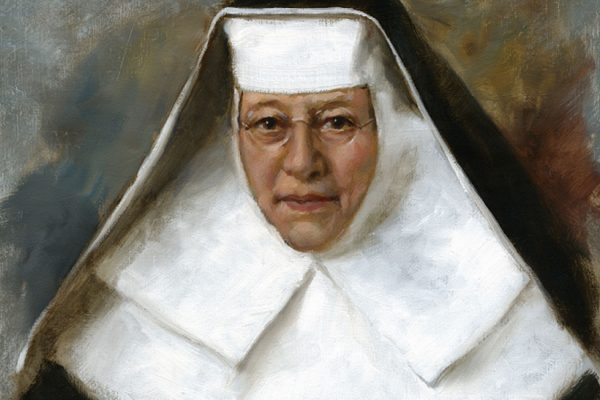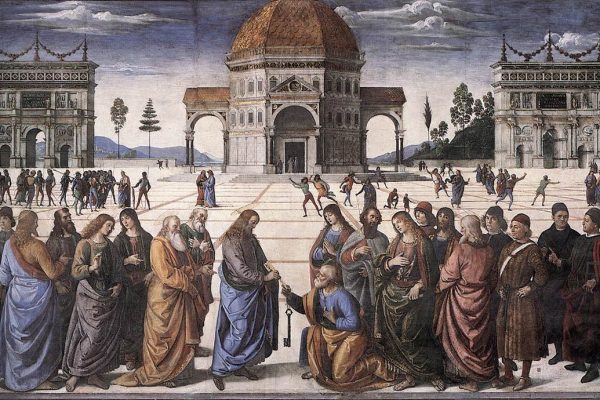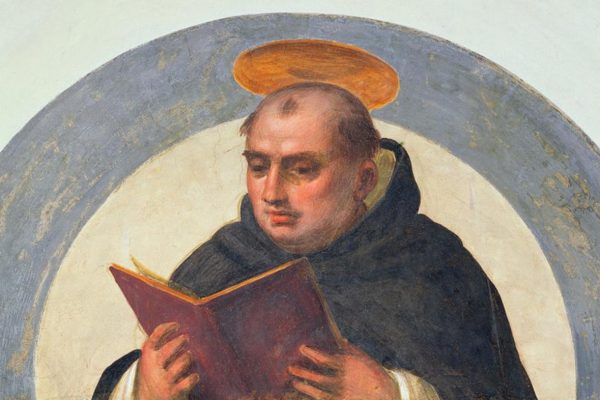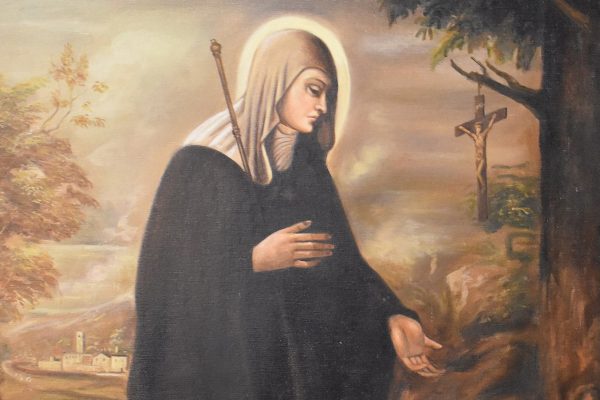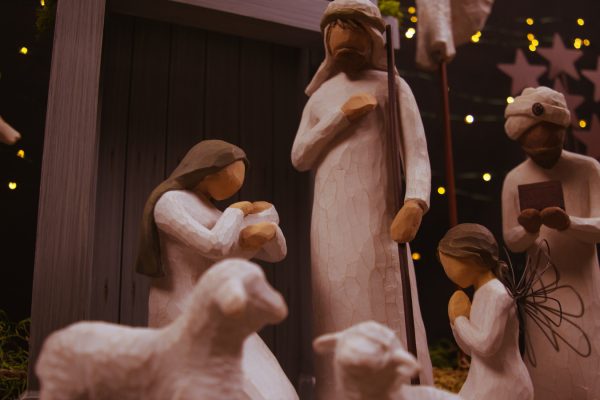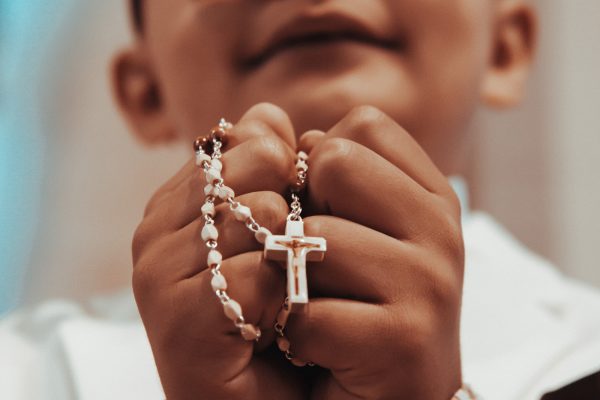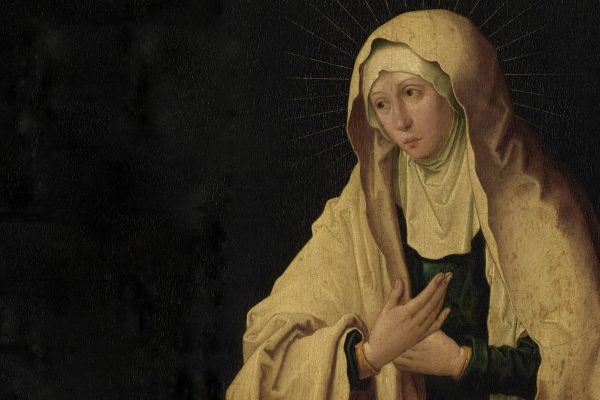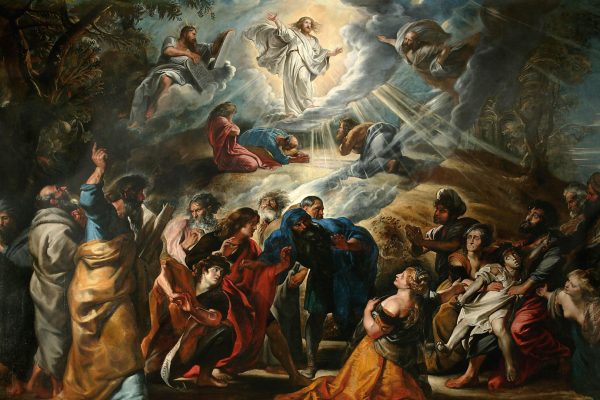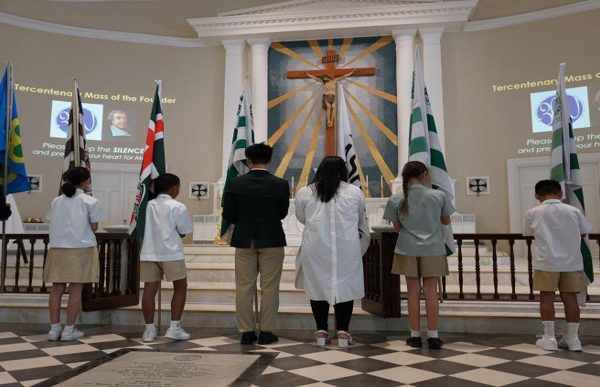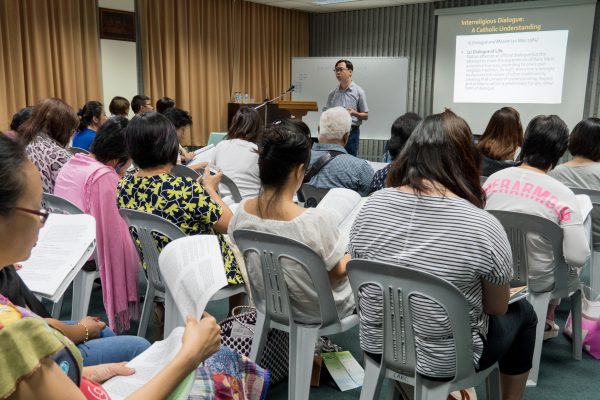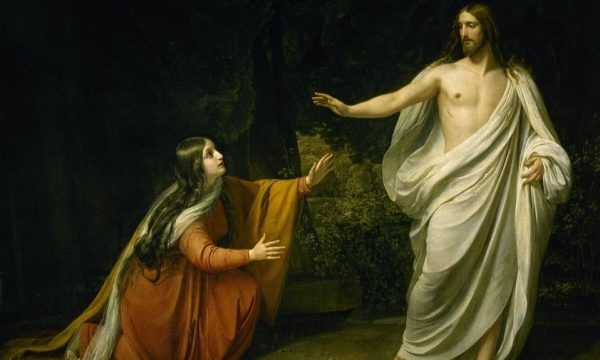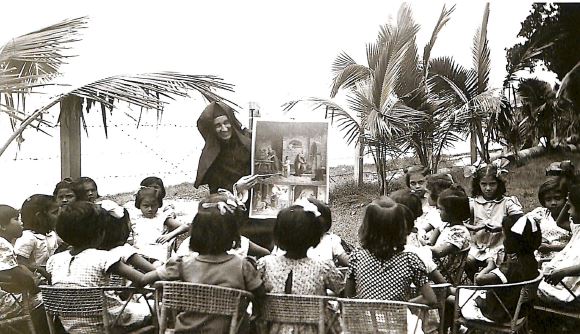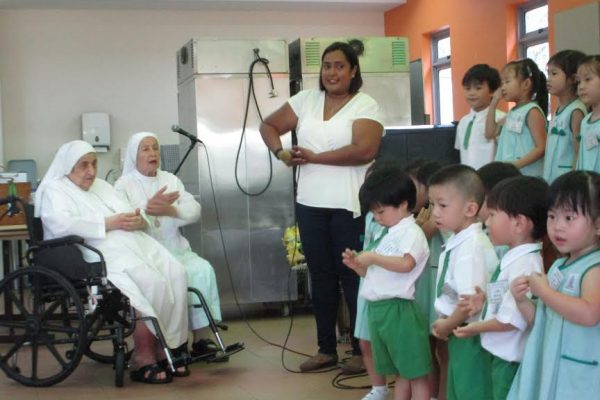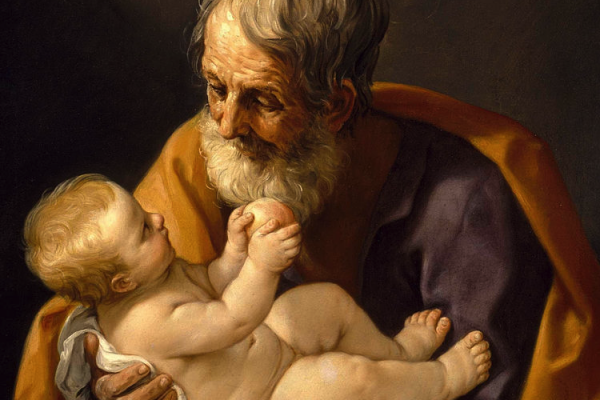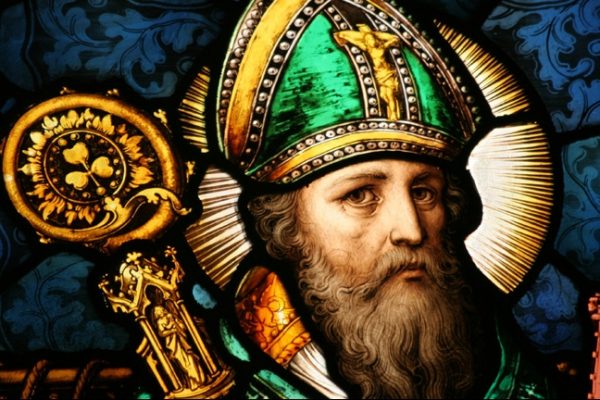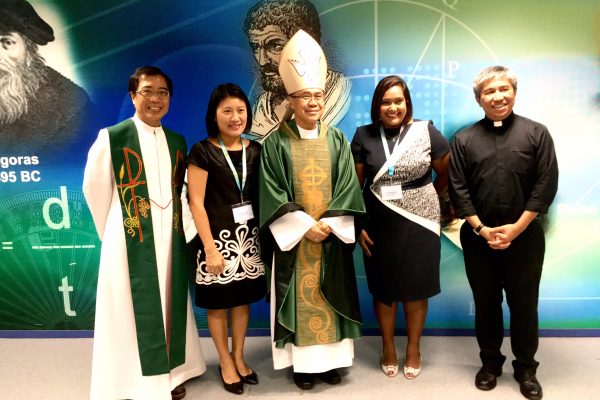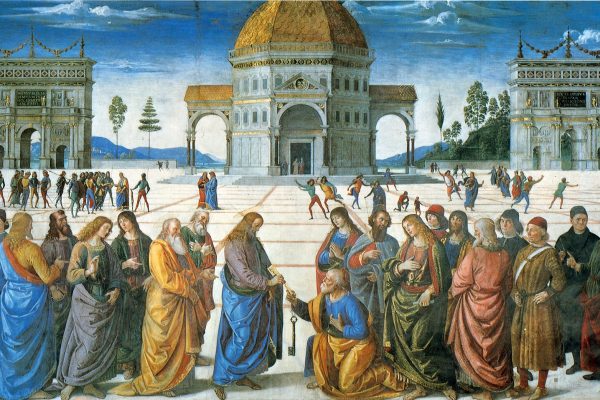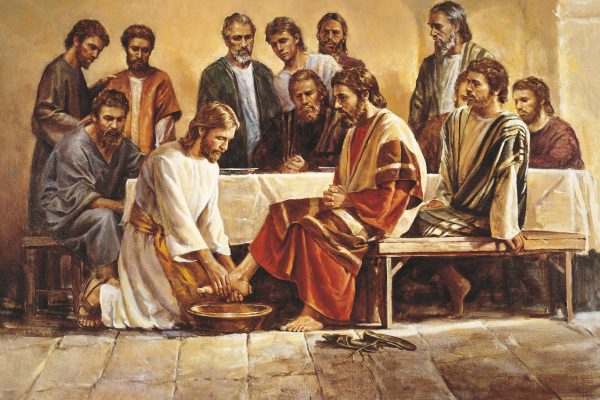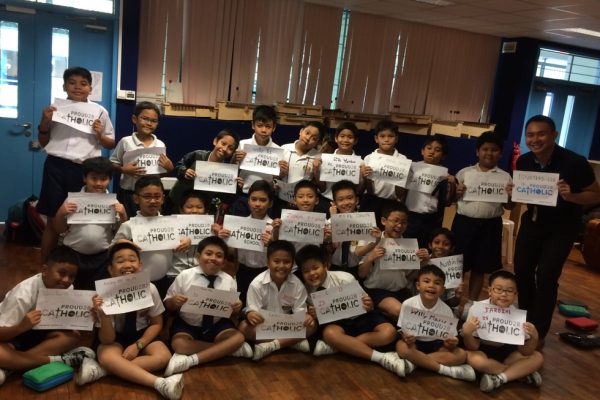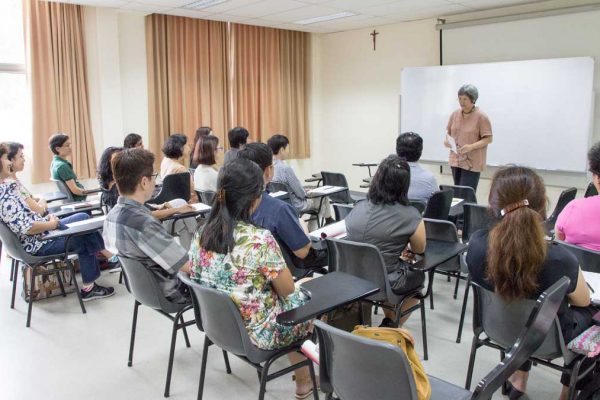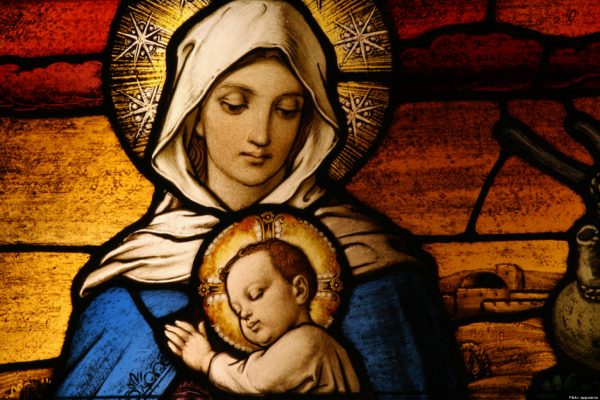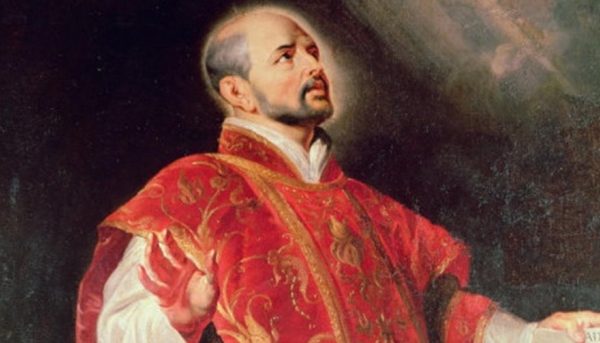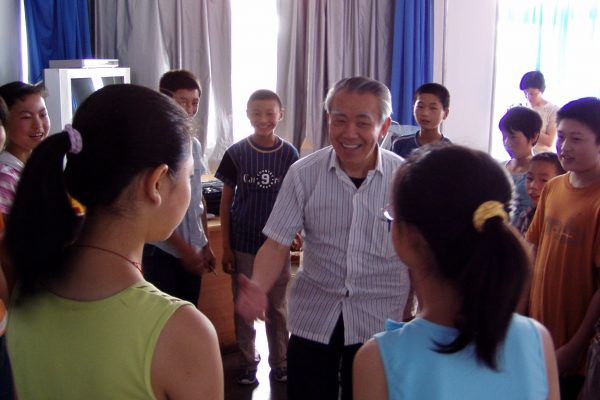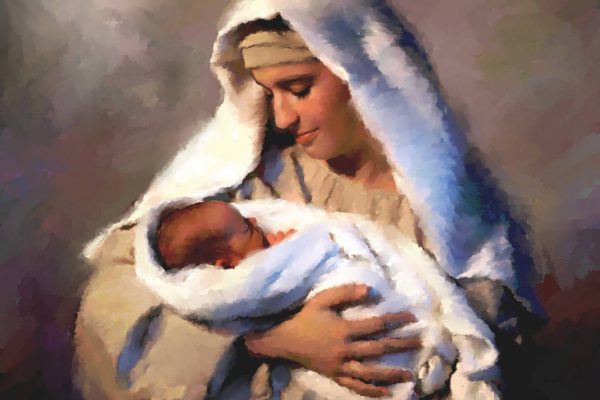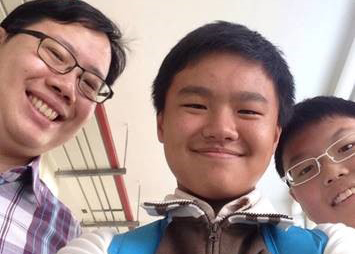
A day in the life of… Sr Assunta Cheng FMM
Literally leaving everything behind, Sr Assunta Cheng left her hometown in Taiwan nearly seven years ago to serve with the Franciscan Missionaries of Mary (FMM) in Singapore. She shares her experience being involved as a spiritual counsellor in Holy Innocent’s High School and St Gabriel’s Primary.
What are some of the difficulties in your area of work with schools and education?
Different schools have different situations. But I think teenage students are more challenging, because they are more attracted by things outside than in religious and spiritual ways. Like when I prepare a spiritual session for students each week, only about eight to 10 good students will come on their own, and it’s always only the upper secondary students. The lower secondary ones don’t seem to care, they don’t like it, and so I have to approach them.
How do you overcome them?
Prayer, and I think the most important thing is to befriend them. Sometimes when I approach them, especially those lower secondary, I won’t question them hey why didn’t you come to see me or to see God, to see Jesus? I would instead ask, how are you? What is going on in life now? Or what did you eat during recess? And other questions like this. I try to befriend them, talk about their studies, their life, to try to understand them.
What do you like about working in the education sector?
Because I enjoy being with youth and young people, it’s very nice to be able to be with them the entire day. When you can get to know them, to know their difficulties. Even sometimes when they don’t see my role in their studies, and they keep a big distance from me, I think it’s good to have a chance to talk to students. I will take any opportunity to get to know students. For example I usually go to every class in the morning, about 7am. The principals are the ones who requested me to do this, the most important is that I represent the religious character of the school. Students of all religions, not just the Christians, will have a chance to talk to me this way.
Do you have any fondest memory of your time in the education sector?
A lot of interesting things has happened, but I’d like to talk about the secondary four students in particular. Actually for secondary students, they are more difficult to understand deeply. They only want to talk about their studies, or other surface issues. It’s a little tougher if you want to talk deeply with them.
I remember one or two years ago, there was a secondary four student passing by the chapel in the school. I was there doing some arrangements. I thought it was very strange that during school time this boy could still be walking up and down. So I thought oh, he must be having some trouble. He decided to come into the chapel after a while, and I tried to talk to him. Turns out, his teacher had just confiscated his handphone and he was very upset by it. So I said okay let’s sit down and talk about it. I asked him, you know it’s your fault, but you’re angry? He says yes. So I asked, when you were primary school, did you have a handphone? He said no. Were you happy then? Yes. Now you are at the secondary level, you have a handphone, but are you happy now? No I’m not. Now, is the handphone controlling you or are you controlling the handphone? You have a phone now, but you are unhappy when someone takes it away. Then why do you want to have one in the first place? You’ve become a slave of it. He just thanked me and left the chapel after the conversation, and I didn’t keep this in memory much. But on graduation day, this same boy approached me to thank me, and a few months ago, I bumped into him again on the road but I didn’t recognise him because I minister to so many students. But he remembers me, and I think these are some fond memories I have when I can talk to secondary level students on a deeper level.
What does being a Catholic educator mean to you?
To be able to pass onto them God’s love, to help them know that God loves them unconditionally. Also, for many students, they are struggling and are still in the growing process. They need encouragement, someone to show them direction. To me, the most important is to be able to show them God’s love, and being a teacher is a very good chance to do something like this.
What is one thing about the foundress of the Franciscan Missionaries of Mary that inspires you?
My foundress is Mary of the Passion. Her very open mind is what inspires me. She in fact came from France, but was sent to India to minister. She was able to have an open mind to recognise the differences between the races and their different needs. Especially since our Catholic Church has a universal mission. Even though she is in a different country surrounded by a different culture, she still tries to bring Christ to them. And the way she does this is very inspiring. I was touched by her wider vision, her universal vision.
Has a student ever inspired you or taught you something valuable?
There is quite a lot. I have actually learnt a lot more from students than I have taught them. I remember asking a primary school student once, what do you wish for in life? And he told me, I want to have love for my family. Immediately I was really touched, I told him I will pray for him. To see a primary school student who doesn’t wish for good grades, but instead wishes for love for his family, for something so deep, it really touched me.
How about a teacher? Does any particular experience still resonate within you?
In the schools I’ve met quite a lot of teachers who have served more than 40 years already. Even though they have been in this line of work for so long, you still see so much passion they have for students. Especially since students nowadays are getting more challenging to handle. There are times they even scold their teachers and try to chase them out of the classroom. It’s really not easy. But these teachers, and there’s not just one or two but a few of them, even though the students treat them this way, the next day they still come back and still care about their students. They are still willing to show them care and love.
What difference would it make if a parent (especially a Catholic parent) enrolled his children in a Catholic school?
Of course, they will have the opportunity in the Catholic school to bring their children closer to the faith. To buy bibles for them at the school bookshop, to be able to guide their children to trust God, and build up their faith. In Catholic schools, the difference is not only a religious moral education, but also many Catholic activities that tries to help students meet Christ.
What is one advice you would give to teachers today?
Never give up on any student. Even if they are very naughty or if they appear hopeless. I remember once, I went into a class to see a primary two boy chasing his classmates around the class with a stick. I stopped him and asked for it, but he refused and fought with me. So I said ok, now put the stick in the corner where I cannot reach it, but you have to put it there because I want to talk to you. I was just trying my luck but he really did it. Then I addressed the class, is this boy good or bad? They all shouted bad. But now I asked them, let’s talk about the good things about him. One student started sharing, oh sister he carried books for the teacher. Ok very good. Then another student started complaining he pinched others and pushed their chairs. Then this very boy said, “sister say only good things!”
So when I say never give up, this is what I meant. That there really is good in every student, and even he knows it himself; what is good and what is bad. He knows. As long as you have a chance to journey with them, then you have a chance to give them the right direction.




